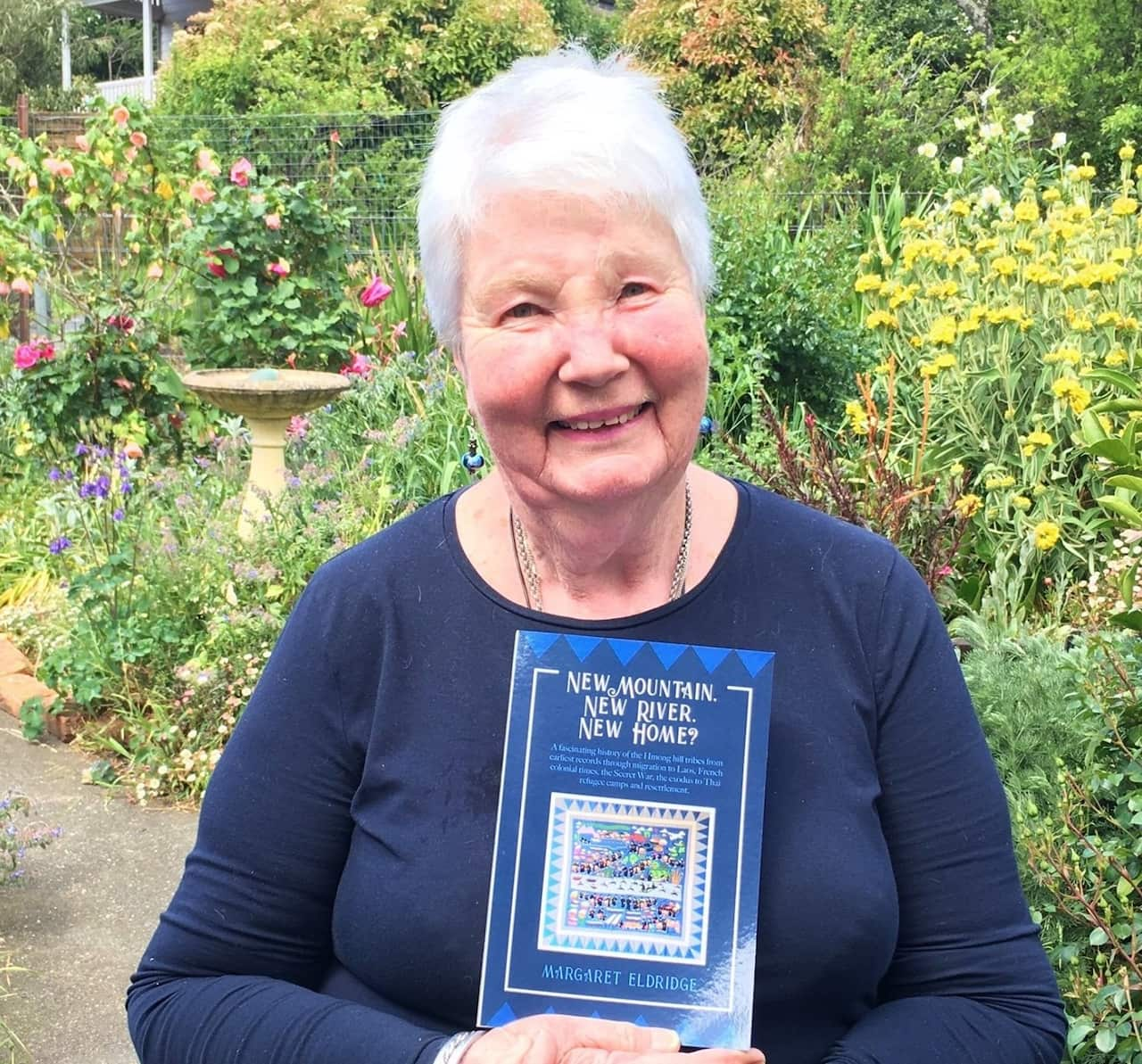There are many reasons why Tasmanian Hmong don't want to write their own stories.
Firstly, Magaret Eldridge who is a teacher taught English as a second language to refugees especially to Tasmanian Hmong in Tasmania for decades says 'it is who you trust with your story."
"Tasmanian Hmong said to Magaret, we trust you because we know you and the reason we don't tell our story to or talk with journalists is that we don't know them," says Ms. Eldridge.
What is more important than that is, Magaret Eldridge says, ''we don't want to tell a story that will harm our relatives or our loved ones." That is the reason why Tasmanian Hmong doesn't want to write their own migration stories.
Therefore they persuade Magaret Eldridge to have their stories written. And she finally agreed, but it took her 3 years through her master's in education class with the University of Tasmania and her book called 'New mountain, new rivers, new home? The Tasmanian Hmong' was eventually published and it is now republished for the second time. In this book, she is using qualitative and quantitative research approaches to explain why Hmong migrated and try to find out the answer why it is so.
Despite challenges, Magaret's disciplines and dedication lead to the fruitful result that is she has written the book about Tasmanian Hmong. She says that it is important to put the Tasmanian Hmong story in written records, so it can be shared with mainstream Australia as other refugee groups who settled in Australia already have their stories in the written records.
It is not an easy task to write a story about Hmong story, says Magaret Eldridge, due to the complexity of the Hmong origin, who is the Hmong, and the Hmong oral storytelling (no Hmong migration story was in written records).
Wikipedia cited many reasons behind why Hmong migrated either from China to Southeast Asia. During late 18 to 19 century the Han Chinese Qing Dynasty's repressive economic and cultural reform and target the Hmong for genocide as well as the Manchu who also target Hmong (Miao) for genocide and whoever defy will be humiliated, enslaved and opressed. Therefore, Hmong migrate south to Southern China and some head Southeast Asia when they lost their battles.
During the indochine wars, the French colonized Indochines and the US recruited Hmong to join its secret war in Southeast Asia. These events made Hmong in Laos invloved, rebelled and was exploited at the will of the colonizers.
After the Vietnam War, the US had to withdrew due to deplomatic and domestic pressure, the Hmong who jointed the US secret war are left to defend for themselves. Those who ddin't want to migrate as refugees to Thailand took arms to protect themselves and hide in Northeastern Laos to the present day.
In 1975 the Pathet Lao had overthrown their own king Sisavang Vathana, arrested and put in re-educational camp along with the former kingdom's seniors officials in Samneur. They changed the democractic political idealogy to communist regime. Therefore the Hmong who served the US Secret War have no choice but fleeing to Thailand as refugees for fearing of retribution from the Pathet Lao, the current Lao PDR government.
That is the second migration after fleeing China to Southeast Asia until the third wave of Hmong have emigrated and resettled in Western countries during 1907s to early1990s e.g, to Europe, Northern America and Australia or New Zealand etc.

She wants to encourage Hmong people to get their DNA test so it could shade light into where exactly Hmong may originate. Hmong legend said that they lived in Yellow River region. Linguist Martha Ratliff claimed linguistic evidence and DNA evidence shown that Hmong have occupied Southern China for 8,000 years. However, white Hmong DNA research in 2011 showed that they have genetic lineage with Hmong-Mien and Mon-khmer in the last Glacial Maximum or around 15-18,000 years ago according to Wikipedia.
She would also like to inspire Hmong younger people to write and share their stories about what they have been achieved as second-generation Hmong Australian where their parents just dream of.
Apart from finalized the book, Magaret Eldridge says some of her friends in the US said, her book could be a very good film material. Ms. Eldridge says though she never loses interest in doing more research about Hmong, or seeing her book turning into a movie, it's time for Hmong to carry on.
What Ms. Eldridge holds dear is having a very good relationship with the Tasmanian Hmong community who she taught English and she was seen as an important figure where Hmong can turn to when they need her advice.
"I was surprised to be called Hmong grandma by Hmong kids, even though I don't know them, they know who I am. This means that me as an English teacher's story was told and passed on to other Hmong generations in the Hmong community."
I was very grateful to have known Vue Thaow, a former Order of Australia reciepient, a Lao Hmong international student studied in Australia under the Columbo Plan in the 1970s, for a very long time and he is a very good friend, having known him and the Hmong community, I have learned and done stories I could never think it is possible to do so or never heard of.
What's more, before her book was going into publishing, she shared her book with Hmong younger people to read and to see what they are thinking about this book. What Magaret got from Hmong younger people is "why don't our parents never told us about these stories." Magaret says, ''It is not just Hmong younger people but even some of the Hmong parents don't know about Hmong stories while they are still in refugee camps in Thailand.''
READ MORE

COVID-19 vaccine







